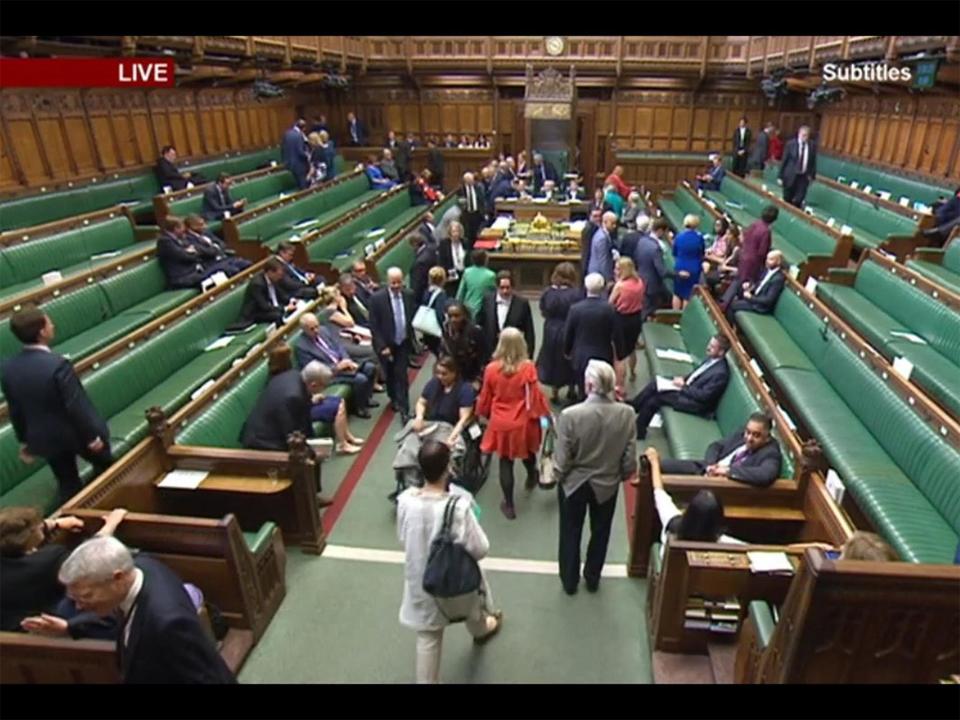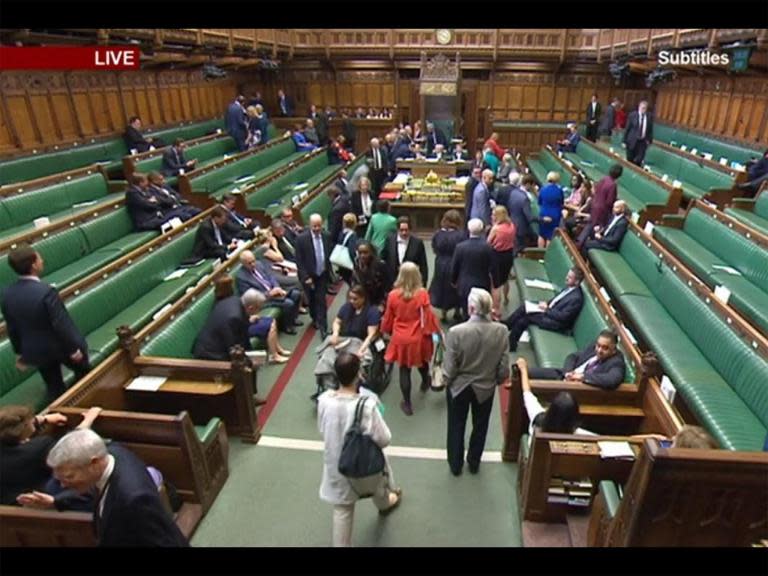An MP was wheeled through the voting lobbies, high on morphine and carrying a sick bucket, the moment Brexit lost the dignity it never had
As Labour’s Naz Shah was wheeled up the floor of the House of Commons, sick bucket in lap and high on morphine, she did not wear the look of someone who understood that the meaningful vote on the meaningful vote she had been dragged in from hospital to cast her meaningful vote on had been rendered meaningless minutes before.
And in that, in fairness, she was not alone. You certainly did not have to have been at the opiates to have had not the faintest clue what was going on, as parliament stepped back from the brink of a crunch Brexit moment at the last moment.
So tight was this vote meant to be, and so very important, and so damaging to the government, that Tory whips had refused to allow the practice of sick MPs being “nodded through”. When similar scenes unfolded in the late 1970s, and the fall of the Callaghan government, sick MPs only had to be within the parliamentary estate for their vote to be counted. But this time, it was demanded they pass through the lobbies. So Shah’s summons from hospital, where she has been for the last three days, turned out not to be the 10 minute stint in the car park she had been anticipating, but a full three hours and a trip to the chamber.
It should also be noted that, when it came to the vote, her wheelchair was too wide to fit through the gap between the frontbenches and the despatch box, and so she had to be wheeled out of the Commons, round the side and in through the rear door of the voting lobbies. It is, for now, the least dignified moment of Brexit. There will be plenty worse to come.
Lib Dem deputy leader Jo Swinson was there too. In fact, it’s arguable the government’s eventual 16 vote victory should have been a mere 15, as Swinson carried with her through the lobby the baby whose due date was two days ago.
Outside, all morning and afternoon, large numbers of EU flag-wearing protesters had been howling “Stop Brexit” at the walls, which, not for the first time, proved impregnable to their demands.
If you want to know what had been meant to happen, it was this. In about six months’ time, when David Davis inevitably doesn’t come back from Brussels with any kind of clear deal on the UK’s future relationship with the EU, MPs were hoping to pass a vote that would give themselves the right to accept or reject the “deal” (even though it is highly unlikely the deal will amount to anything) – and if they reject it, to then send David Davis back to Brussels to carry on negotiating for a better deal than the one he won’t get.
In reality, it was a vote to kill off the possibility of hard Brexit. For parliament to say: “No, it is not true that no deal is better than a bad deal. No deal is the worst possible deal. There is no deal that is worse than no deal, so stop pretending there is.”
But in the end, the architect of this plan, Dominic Grieve, accepted a last-minute concession from the government, that in the event of no deal there would be other opportunities for parliament to say no to it. He and other “rebels” called off their rebellion. The vote went ahead but the risk of government defeat vanished. The sick and the overdue had wasted their time.
Oh, and by the way, the most important aspects of the deal – namely future trading arrangements – aren’t even included in this bit of the vote. They will be worked out during the transition period that comes after Brexit itself (well, they are meant to be worked out then. They won’t be, of course. There isn’t nearly enough time).
And in yet another moment of spectacular irony of which there is certainly never any shortage, while this was all happening, the European Parliament’s chief Brexit negotiator, Guy Verhofstadt, was around 40 yards away, in Westminster, telling not one but two select committees that the UK’s own red lines, not the EU’s, mean it will end up with some kind of “Ukraine-style” association agreement that will be significantly damaging to the British economy.
But now, as then as tomorrow and tomorrow and the day after that, everyone is far too busy to listen to the glaringly obvious truth as it exists, in plain sight, and entirely unaltered at any point in the last two years. Why do that, when it’s so much more fun to not so much ignore the elephant in the room as get wheeled around it, high on morphine and trying not to throw up?

 Yahoo News
Yahoo News 

